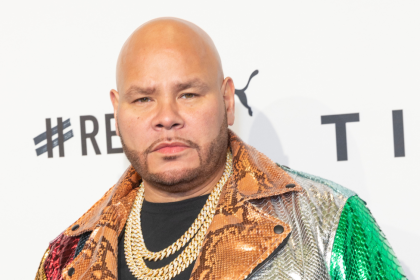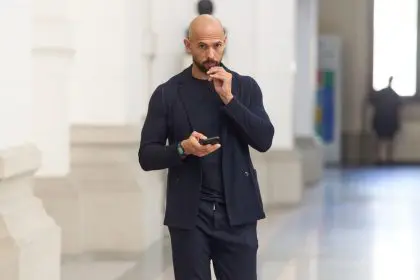A contentious civil trial unfolding in Los Angeles Superior Court has placed rapper DeAndre Cortez Way, professionally known as Soulja Boy, at the center of serious allegations brought forth by a former personal assistant. The plaintiff, identified in court proceedings only as Jane Doe to protect her privacy, has presented testimony describing a pattern of alleged abuse during her employment with the entertainer between late 2018 and 2020.
The case represents a complex intersection of workplace allegations, claims of personal misconduct, and disputes over consent that have become increasingly common in entertainment industry litigation. As the proceedings continue, both sides have presented starkly different characterizations of their professional and personal relationship, highlighting the challenges inherent in adjudicating such sensitive matters within the civil court system.
Testimony reveals conflicting accounts
Soulja Boy took the stand to directly address the multiple allegations against him, particularly the most serious claims of sexual assault. During Soulja Boy’s testimony, he acknowledged that a sexual encounter occurred between himself and the plaintiff during a February 2019 police raid at his residence but maintained that the interaction was entirely consensual in nature. He described a situation in which explicit verbal consent was established prior to any intimate contact.
The defense strategy, orchestrated by attorney Rickey Ivie, has emphasized what they characterize as significant inconsistencies in the plaintiff’s account while questioning the absence of contemporaneous evidence supporting her claims. This approach reflects a common defense position in civil cases involving allegations of misconduct, where the burden of proof differs from criminal proceedings but still requires persuasive evidence to establish liability.
Plaintiff details alleged pattern of mistreatment
Jane Doe’s testimony has painted a dramatically different picture of her employment period with Soulja Boy. She has described multiple instances of alleged physical and sexual abuse throughout her tenure as his assistant, including claims of rape during the previously mentioned police incident and again in October 2020 when she reportedly returned to collect personal belongings from his property.
Among the most disturbing allegations is her claim that after attempting to terminate her employment in 2019, she was forcibly confined to a room for approximately 72 hours without access to food or water. This allegation of false imprisonment represents one of six distinct claims forming the basis of her civil complaint against the entertainer.
Employment relationship under scrutiny
The plaintiff has testified that despite an initial agreement promising $500 weekly compensation for her services, she never received payment for her work as Soulja Boy’s personal assistant. According to her testimony, her responsibilities were extensive and demanding, encompassing household management tasks such as cooking and cleaning, providing transportation services, and maintaining near-constant availability to address his needs.
These allegations potentially implicate labor regulations regarding overtime compensation and minimum wage requirements, adding a workplace compliance dimension to what might otherwise be characterized as a personal dispute. Employment law violations constitute a significant component of the civil complaint, alongside the more sensationalized allegations of personal misconduct.
Control tactics allegedly employed
Jane Doe’s testimony has included descriptions of various methods allegedly used to maintain control over her movements and actions. She claims that Soulja Boy confiscated her driver’s license, effectively limiting her ability to travel independently, and isolated her at his Malibu rental property. Such allegations suggest elements of coercive control that extend beyond conventional employer-employee dynamics.
The plaintiff has further testified that threats involving firearms were used to intimidate her, creating an environment of fear that prevented her from leaving the situation despite the alleged mistreatment. These claims speak to the complex psychological factors that can complicate workplace relationships, particularly in private employment arrangements that lack institutional oversight or protective structures.
Allegations of physical violence
The civil complaint includes detailed allegations of physical assault occurring on multiple occasions throughout the employment period. Jane Doe has testified that she endured approximately ten separate incidents in which she was struck in the head, in addition to being kicked and subjected to other forms of physical abuse including being spat upon during confrontations.
Her testimony included a specific allegation regarding a February 2019 incident after which she claims Soulja Boy provided her with $1,000, which she interpreted as an acknowledgment of wrongdoing and an attempt to make amends for the alleged assault. This description of a financial transaction following an alleged violent incident adds a complicated dimension to the assessment of the relationship dynamics.
Threats allegedly accompanied physical abuse
Beyond the allegations of direct physical harm, Jane Doe has testified about verbal threats that she perceived as endangering both her life and the safety of her family members. According to her testimony, these included explicit statements and warnings that he would dispatch others to harm her relatives if she attempted to leave his employment.
These alleged threats represent a significant component of the hostile work environment claim included in the civil complaint. The plaintiff has testified that despite these concerning interactions, she remained in the employment situation due to repeated apologies and promises of behavioral change, reflecting the complex psychological dynamics often present in relationships involving alleged abuse.
Legal context and procedural history
The civil proceedings follow a previous criminal investigation conducted by Ventura County prosecutors that concluded in 2021. After reviewing the available evidence, authorities declined to pursue criminal charges against Soulja Boy, citing insufficient evidence to meet the “beyond a reasonable doubt” standard required in criminal proceedings.
This outcome illustrates the significant distinction between criminal and civil justice systems, particularly regarding the different evidentiary standards applied in each context. While criminal charges require prosecutors to establish guilt beyond reasonable doubt, civil complaints operate under the less stringent “preponderance of evidence” standard, potentially allowing claims to succeed in civil court despite insufficient evidence for criminal prosecution.
Civil complaint encompasses multiple claims
The current proceedings are based on a comprehensive civil complaint filed by Jane Doe that includes allegations of sexual battery, assault, false imprisonment, intentional infliction of emotional distress, labor code violations regarding unpaid wages and overtime, and the creation of a hostile work environment. Each of these claims requires distinct elements to be proven, creating a multifaceted legal challenge for both parties.
As the trial continues, both legal teams are expected to present additional evidence and witness testimony addressing these various claims. The complexity of the case reflects the overlapping personal and professional boundaries that characterized the relationship between the plaintiff and defendant.
Broader implications beyond individual case
The allegations at the center of this civil trial reflect issues that extend far beyond the specific circumstances of this case, touching on broader societal concerns regarding power dynamics in professional relationships, particularly within the entertainment industry. The testimony presented highlights the potential vulnerabilities faced by support staff working in close proximity to high-profile individuals in relatively unstructured environments.
The proceedings also underscore the challenges inherent in adjudicating allegations of misconduct that occur in private settings with limited external witnesses. In such cases, courts must navigate competing narratives and assess credibility without the benefit of substantial corroborating evidence, creating significant challenges for the legal system regardless of the ultimate outcome.
As the trial progresses toward its conclusion, both parties face significant stakes. For Jane Doe, the proceedings represent an opportunity to secure legal validation of her claims and potential financial compensation for alleged damages. For Soulja Boy, the outcome could have substantial implications for his professional reputation and financial standing, regardless of whether criminal charges were deemed unsupportable by prosecutors.
The case highlights the critical importance of clear communication, appropriate professional boundaries, and proper documentation in employment relationships, particularly in situations involving significant power differentials. Whatever the ultimate verdict, the testimony presented offers a troubling glimpse into the potential complications that can arise when personal and professional boundaries become blurred without adequate safeguards or oversight.
















